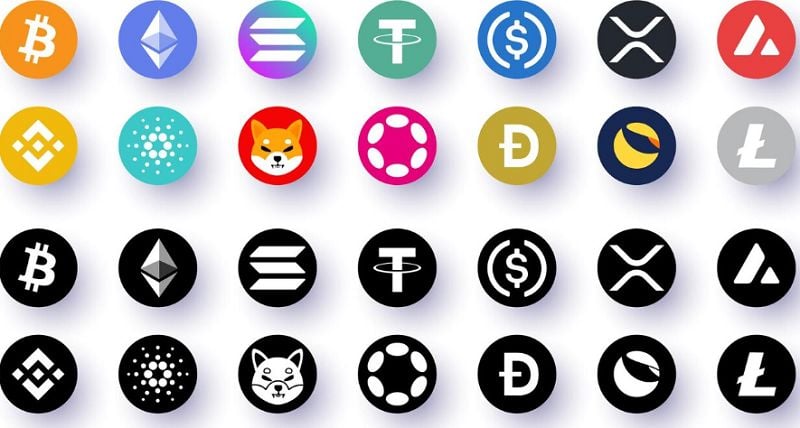For Key Crypto Trading Tips You Can’t Afford to Miss

Crypto is growing in importance as an asset class, recognized for its potential to offer phenomenal rewards. Investments in crypto assets require a lot of time, specific knowledge, analytical skills, and professional tools to be successful, but it’s an effective way to put your money to work and build wealth.
Not all cryptos are created equal, and your selection can significantly impact your investment outcome. Ultimately, the choice of what crypto to buy should align with your financial goals, risk tolerance, and investment horizon.
In a perfect world, you buy low and sell high. In reality, that’s easier said than done. Volatility causes uncertainty and the fear of missing out, which can be very strong if there’s insufficient information.
Should you be participating at all? Yes. You can take advantage of the opportunities volatility brings, especially when price inefficiencies arise. You likely begin your investing journey by identifying the most advantageous top cryptocurrency for you and building up knowledge as you go, perfecting your portfolio management accordingly.
So, are you truthfully ready to explore crypto? If so, here are four practical, no-hype tips to help you trade crypto with more confidence.
Establish a goal in your crypto trading
The crypto markets are borderless, open 24/7, and offer true potential for growth. Bitcoin and Ethereum have more transactions centered on trading and investing than they do on the actual use case of the project.
Crypto trading occurs on multiple exchanges, which have different rules and regulations and often require a lengthy verification process. You should enter a trade only when you’re mentally prepared and understand the risks involved. The more your actions become routine, the better you can positively respond to pressure.
Investing isn’t about choosing the crypto that will make you rich but about putting your money to productive use in the hopes of earning a decent return.
Acting spontaneously, without considering the consequences, doesn’t end well, so invest with a specific goal in mind. Know yourself – i.e., your needs and wants – and consider factors such as income, age, and future outlook. Investing in crypto creates wealth and raises money for long-term goals such as retirement or buying another asset ( a car or a home).
Recognize and deal with FOMO
We live in the age of FOMO. If you’re unfamiliar with the term, it means the fear of missing out, a psychological phenomenon that leads to poor investment decisions. While FOMO is typically associated with social media posts and memes, it has profound implications.
No matter where you are and where you live, you’re tethered to devices that demand your attention and give you endless opportunities to feed your FOMO. If you’re vulnerable to FOMO, you’re likely to allow it to cloud your decision-making and hijack your intuition.
When the value of a crypto increases all of a sudden, you believe there’s a better opportunity out there, even if the fundamentals haven’t been thoroughly checked. Your imagination fills in the details.
When the moment passes, the urge goes away on its own. There are times when FOMO is persistent, and when that happens, you should listen to your inner voice and ask, “But is this really a good idea?”. It’s telling you not to give in to your FOMO.
Navigate and manage risks
For every winning trade, there must be a losing trade. More precisely, if you consistently make money, there must be another trader consistently losing money. This is due to a combination of effort, skill, and luck.
Risk management in crypto trading is critical for turning away the gamble of bearing misfortunes emerging from price fluctuations. By proactively identifying and mitigating potential risks, you can avoid financial losses, improve decision-making, and create sustainable profitability.
While investing in crypto is a risky endeavor, there are plenty of ways to address threats or uncertainties that can affect your performance, such as:
- Pick a secure storage option for your crypto assets: Crypto ownership demands securing digital assets against thefts, hacks, and unauthorized access. You should store the bulk of your crypto in a hardware wallet because it keeps your private keys out of reach from the Internet. Each manufacturer includes different features in their hardware and associated software, such as self-destruction mechanisms.
- Do your own research: Perform due diligence and make better-informed trading decisions. Engaging in research enhances critical thinking skills so you can evaluate information more effectively and make choices that align with your personal goals, values, and risk tolerance. To maximize gains and reduce losses, you can turn to fundamental, technical, and sentiment analysis.
- Spread your investments across cryptos: Put your money into a variety of different cryptos that aren’t strongly correlated with one another to reduce the impact of market volatility. Since your assets don’t all move in the same direction, you secure better risk-adjusted returns. Have a portfolio with 10-30 cryptos for adequate diversification.
- Protect your positions using stop-loss orders: Sudden and significant price movements can lead to unexpected losses if your trades aren’t properly managed. Set stop-loss orders to manage your intra-trade risk. This helps ensure you don’t lose more than you’re ready to and eliminates the need for constant monitoring of crypto prices. In the volatile crypto market, caution is of the essence.
Be aware of crypto scams
Scammers are always finding ways to steal victims’ money, and because crypto has become popular, they now pray on the unsuspecting. Fraud can target anyone, irrespective of background, experience, or awareness, so even security-conscious people can fall victim to crypto scams.
Phishing scams are very common in the crypto world and include spam emails, bogus websites, and messages designed to trick victims into revealing sensitive information. Be cautious of emails, especially if they contain attachments or links, never reuse passwords across accounts, and use a VPN when connecting to the Internet.
Fake crypto exchanges are another common scam. These platforms deceptively present themselves as legitimate trading platforms and fool unsuspecting victims into depositing their funds with ridiculously high sign-up bonuses. In some cases, they manipulate the numbers to make it look like the website is busier than usual.
If you suspect a crypto scam or have fallen victim to fraud, alert the competent authorities to prevent further harm. A civil litigation lawyer might help you recover your funds.
All in all, crypto investing can be quite a complex journey, one that calls for vigilance, knowledge, and commitment to continuous learning. Thread safely!





